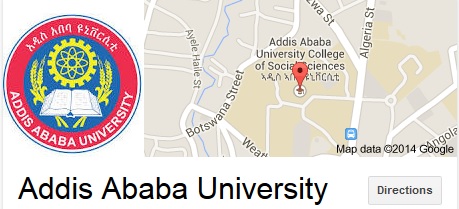RE-GREENING
HORN RE-GREENING
Overview
The Horn Re-Greening Program (HRGP) was established to protect valuable ecosystems and the biodiversity in the Horn of Africa region, rehabilitate degraded areas, and enhance the benefits of ecosystem goods and services.
Context
Once known for its ecological richness, biological diversity and endemicity, the Horn of Africa has faced alarming levels of environmental degradation as a result of unsustainable land management and natural resource use. As a result, the natural forest cover is dwindling at an alarming rate and environmental deterioration has contributed to poorer livelihood conditions and increased vulnerability to climate change impacts, and will continue to have damaging consequences if not alleviated.
Common intervention practices are usually small-scale, addressing localized problems in the short-term, but failing to resolve problems at landscape level, causing large scale problems to system functions in the long-term. So the challenge is how to sustainably rehabilitate degraded ecosystems at landscape level and minimize future damage to the Horn of Africa as a whole.
The HRGP at HoA-REC&N was launched to address key environmental and social issues in relation to land degradation in the Horn of Africa.
Implementation
The HRGP aims to establish networks and partnerships with relevant stakeholders. Implementation of the Program’s activities involves local communities, government, Non-Governmental OrganizationOrganizations (NGOs)/Community-based OrganizationOrganizations (CBOs) and the private sector directly to ensure the success and sustainability of different activities.
Current Project Locations
Currently, the Program is involved in the rehabilitation of 3 areas in Ethiopia; the Addis Ababa Mountain Range, Rift Valley, and Gambella, and in the future, the Northern Highlands. These areas are experiencing either a lack of proper conservation and/or soil and vegetation degradation at a considerable rate due to anthropogenic and other factors.
Addis Ababa Mountain Range
In the Addis Ababa Mountain Range, the HRGP is initiating the rehabilitation of the Entoto Mountain range and is currently coordinating and facilitating the Mount Wochecha Rehabilitation Project in partnership with Oromia Forest and Wildlife Enterprise (OFWE) and Oromia Development Association (ODA) to:
- Protect the remaining forest;
- Promote reforestation;
- Rehabilitate degraded land;
- Develop community livelihoods.
Reforestation is a major activity and a total of 500,000 indigenous tree seedlings have been planted annually over the past 3 years, celebrated by an annual tree planting ceremony involving the local community.
Other initiatives include distributing beehives and apple tree seedlings to selected households for income generation, as well as the development of biogas schemes.
The aim is to not only enrich the forest and protect the watershed from soil erosion, but also involve the local community directly to sustain the diverse ecosystem services and improve their livelihoods.
The project was partially funded by the Chinese and French Embassies.
The Program has also been undertaking a pre-feasibility study for possible carbon financing schemes for Mount Wochecha, in partnership with the Oromia Forest and Wildlife Enterprise. This could result in voluntary funding and/or access to carbon markets.
Other HRGP projects areas in the Addis Ababa Mountain Range are:
- Entoto and Yerer, in collaboration with the Ethiopian Heritage Trust;
- Gullele, in collaboration with the Gullele Botanic Garden (the location of HoA-REC&N’s new headquarters).
Central Rift Valley
The Program is working with partners to address proper land and water management in the Central Rift Valley, an area which is comprised of Lakes Ziway, Abijata, Langano and Shalla as well as 3 major rivers: Bulbula, Meki and Katar.
Rehabilitation of key watersheds such as Guraghe and Arsi highlands, which are catchments for the Meki and Ketar Rivers, respectively, and escarpments of Adami Tulu is underway. The Land Use Plan development initiated in 2009 to develop a buffer zone and construct an artificial wetland along the shore of Lake Ziway to rehabilitate the lake’s ecosystem and mitigate the impacts is also on-going.
In line with the Ethiopian Government’s plan to integrate 100 million Faidherbia albida trees in the farmland areas, the Program is building the capacity of local communities and practitioners to use F. albida to improve food production and the livelihoods of farmers through evergreen agriculture.
Future Plans for the Northern Highlands
The HRGP is engaged in developing a proposal for biodiversity conservation in the Northern Highlands in Ethiopia by conserving remnant church forests as Eastern Afromontane biodiversity hotspots. This project will use integrated community-based approaches in Western Estie, South Gonder, in partnership with the Interchurch Organization for Development Cooperation (ICCO), Organization for Rehabilitation and Development of Amhara Region (ORDA) and Ethiopian Orthodox Church Development and Interchurch Aid Commission (EIC/DICAC).
Events
Earth Day
The Program also helps organise Earth Day, the largest, most celebrated environmental event worldwide. For over 40 years, Earth Day on April 22 has been a valuable tool for inspiring and mobilizing citizens and organizationorganizations to demonstrate their commitment to environmental protection and sustainability.
Annual tree planting
For the last 3 years communities around Mount Wochecha have come together to plant tree seedlings, directly participating in forest rehabilitation. Tree planting will also be extended to the Addis Ababa Mountain Range to establish the ‘Addis Ababa Green Belt’ and improve the livelihood of the nearby inhabitants.
Other Ongoing Activities
- Capacity building and awareness raising activities for stakeholders in collaboration with network member organizationorganizations;
- Promoting income generating, environmentally-friendly activities;
- Initiating ecosystem service payment on Mount Wochecha, and around Ziway and Langano Lakes;
- Supporting Demand Driven Action Research (DDAR);
- Initiating and developing a national agro-forestry strategy, guidelines and training manuals;
- A REDD+ feasibility study for natural forest in Gambella.
Short-term Future Plans
- Develop community-based natural forest conservation activities in Buska
- Non-timber Forest Product (NTFP) value chain development in the Rift Valley and Gambella
Contacts
Dr. Almaz Tadesse
Coordinator Horn Regreening Programme
Email: almazt@hoarec.org







